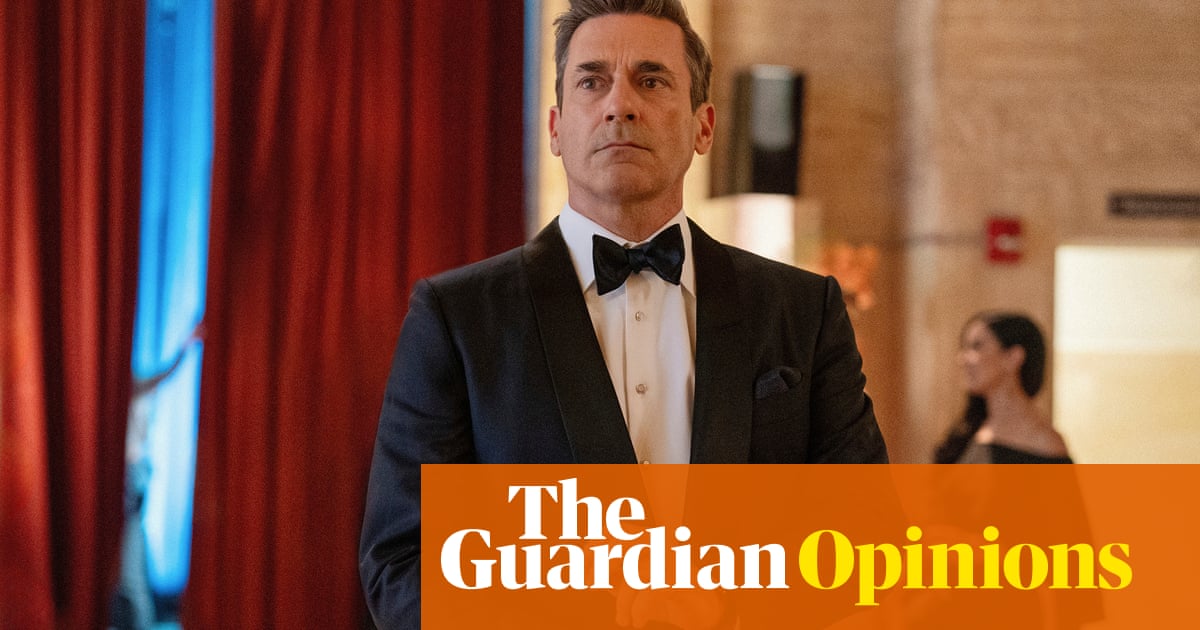It’s important in any healthy relationship to be able to “call each other in” – gently point out issues you are having with behavioural patterns, and ask for some space when needed. I’m thinking particularly about a good friend of mine. Always there when I’m in need, even there when I’m not in need (rarely). That’s right, I’m talking about … television (I’m normal).
I love my television and everything it brings me, but I do have a gripe I need to get off my chest, while I’m lying down on the couch. Mrs TV, love you girl but I’m calling you in: I need TV shows to stop focusing on satirising class only via the lives of rich white people (and occasionally the people around them). This issue has become more obvious since the latest season of The White Lotus, but is not at all restricted to The White Lotus. Recent years have seen TV and movies like Succession, Big Little Lies, The Menu, Triangle of Sadness, Knives Out, Saltburn etc about what is going on with powerful people.
Sign up for the fun stuff with our rundown of must-reads, pop culture and tips for the weekend, every Saturday morning
It doesn’t appear to be slowing down either: in the last couple of days I have seen trailers for a new Apple show about a rich guy (Jon Hamm) who loses it all and starts stealing from rich friends, and Mountainhead, a new movie from Succession writer Jesse Armstrong, about a summit of billionaires. I think the collective noun is actually an “abomination” of billionaires, but I digress.
Don’t get me wrong, I am not here as a hater, in fact I have watched and (mostly) enjoyed everything on that list (yes I do have friends if you were wondering). I am not here to say it’simportantthat we have representation of class in other ways. It’s just that for now it seems that every last drop has been squeezed out of Rich White People Go Through Events (Satirically), and we need a break to let things rejuice. But most importantly, Mrs TV, I am just sick to death of the rich and powerful.
In my daily life I am forced to see billionaires constantly now, their bloated heads and putrid vibes andloser behaviourshoved into my face as I watch the downfall of society on my phone. I personally don’t really want the addition right now of watching another series about the filthy rich, or a movie about a billionaire – unless he is in some sort of trap set by Jigsaw.
Why are we still so obsessed with depicting the elite on screen? Is it to feel some level of power, theorising about their rich inner lives and rich outer lives and watching them go through human experiences, as if it helps us? Is it for upper middle class people to feel smug that they aren’t like that, and wouldn’t be if they had a bit more money? Is it self-flagellation? Or is it still aspirational, admiring wealth even as the wealthy fail, and yearning for the holidays it allows?
Whatever the case, I just want more focus on everyone else too, especially as everyday life continues to get harder for many. I grew up in a very working-class family and while I enjoyed shows and movies about the wealthy, like 90210 and Clueless, they were so far disconnected from my reality as to basically be science fiction. What really resonated with me was watching shows like Roseanne. Seeing a family with a similar life to mine – the struggles, but also the love and the laughter – that is what lit me up. Then came things like Malcolm in the Middle, and Bob’s Burgers, and more recently the underwatched Killing It. Last year, the comedian Julio Torres made Problemista – a surreal comedy that depicts how difficult it is in society’s current structure to get ahead or to even draw equal when you are born behind. These are important life-affirming perspectives, done in unique and funny ways.
Stories about people who have little power are not as shiny, not as pleasing to the eye, not as aspirational in the traditional sense. But they are aspirational in that they show you how to get through the days when life does not treat you kindly. Sometimes that is enough to aspire to. Seeing people with normal lives, or struggling with having a more difficult time, does not have to be depressing. It’s not a coincidence that many of the best TV shows made about the lower classes are comedies, or about funny people.
A lot of TV about class focuses on the people who have power and money, and what they do to get more, or keep what they have. What about if you never had it, and learned to use humour for survival? Those are the people I want to see more about, those are the stories that I relate to.
Sign up toSaved for Later
Catch up on the fun stuff with Guardian Australia's culture and lifestyle rundown of pop culture, trends and tips
after newsletter promotion
The frustration and grit and pain and unfairness – everything that makes people interesting – is available to plunder for comedy or drama, but it doesn’t happen enough. Some of this is because the people making decisions about what TV and movies are made, and often the people making them as well, are themselves from a certain level of privilege, which is not something that can be changed easily (not your fault, Mrs TV). But in the meantime we can all seek out the other perspectives that are available – even if they aren’t at the top of your Netflix recommendations. We can ask for more, demand more. We can pay attention and support creators from different backgrounds. And we can write complaint letters to our televisions.
Rebecca Shaw is a writer based in Sydney
